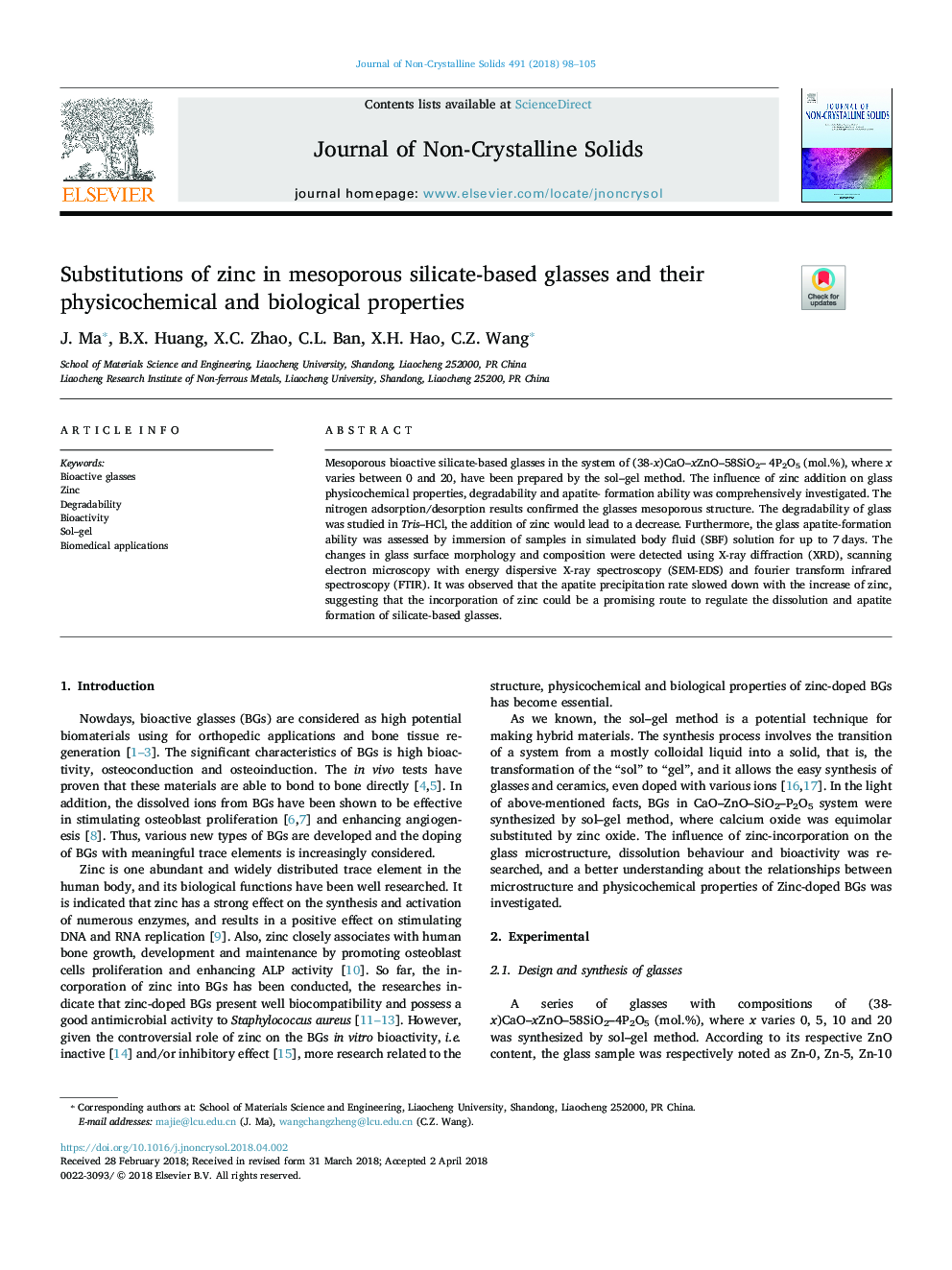| Article ID | Journal | Published Year | Pages | File Type |
|---|---|---|---|---|
| 7899905 | Journal of Non-Crystalline Solids | 2018 | 8 Pages |
Abstract
Mesoporous bioactive silicate-based glasses in the system of (38-x)CaO-xZnO-58SiO2- 4P2O5 (mol.%), where x varies between 0 and 20, have been prepared by the sol-gel method. The influence of zinc addition on glass physicochemical properties, degradability and apatite- formation ability was comprehensively investigated. The nitrogen adsorption/desorption results confirmed the glasses mesoporous structure. The degradability of glass was studied in Tris-HCl, the addition of zinc would lead to a decrease. Furthermore, the glass apatite-formation ability was assessed by immersion of samples in simulated body fluid (SBF) solution for up to 7â¯days. The changes in glass surface morphology and composition were detected using X-ray diffraction (XRD), scanning electron microscopy with energy dispersive X-ray spectroscopy (SEM-EDS) and fourier transform infrared spectroscopy (FTIR). It was observed that the apatite precipitation rate slowed down with the increase of zinc, suggesting that the incorporation of zinc could be a promising route to regulate the dissolution and apatite formation of silicate-based glasses.
Related Topics
Physical Sciences and Engineering
Materials Science
Ceramics and Composites
Authors
J. Ma, B.X. Huang, X.C. Zhao, C.L. Ban, X.H. Hao, C.Z. Wang,
